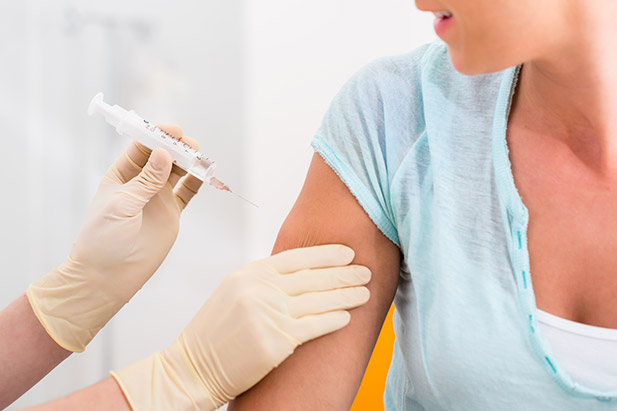Vacation time means vaccination time
Researcher points to immunization as part of an overall plan for living healthy year-round
May 31, 2017

If you plan to travel out of the country this summer, or even if you opt to stay close to home, a University of Ontario Institute of Technology researcher advises you to ensure your vaccines are up to date.
“An abundance of viruses circulate the world at any given time,” says Emma Bartfay, PhD, Associate Professor, Faculty of Health Sciences. “Unfortunately, many of us only pay attention when infections make headlines in the media.”
While we have recently heard a lot about viruses like Zika and Ebola, Dr. Bartfay points out many other infections are also prevalent and dangerous.
“Vaccination is among the best ways to protect yourself from serious but preventable diseases,” says Dr. Bartfay. “By doing so, you also protect individuals around you who may not be able to get vaccinated for a variety of reasons.”
If an unvaccinated traveller returns home with a virus, it can spawn outbreaks within their communities. An under-vaccinated population is partly to blame for a recent increase in measles and mumps.
“When a population is under-vaccinated, it weakens the ‘herd immunity’, that is, the resistance a population has against a given communicable disease,” says Dr. Bartfay. “Many diseases require a high vaccination rate (above 90 per cent) in order for herd immunity to work.”
Even those staying within Canada’s borders should consider getting vaccinated. Some vaccines, such as those for the flu, are annual vaccines. Other vaccines require booster shots after a specific amount of time has passed.
Dr. Bartfay recommends consulting your doctor about your officially recommended vaccination schedule.
“Treat vaccinations like you would any another part of living and staying healthy year-round,” she says. “Most of us are mindful about washing our hands, eating only properly prepared and handled food, and practicing safer sex. Immunizations are one more thing that can go a long way to helping us protect ourselves.”



